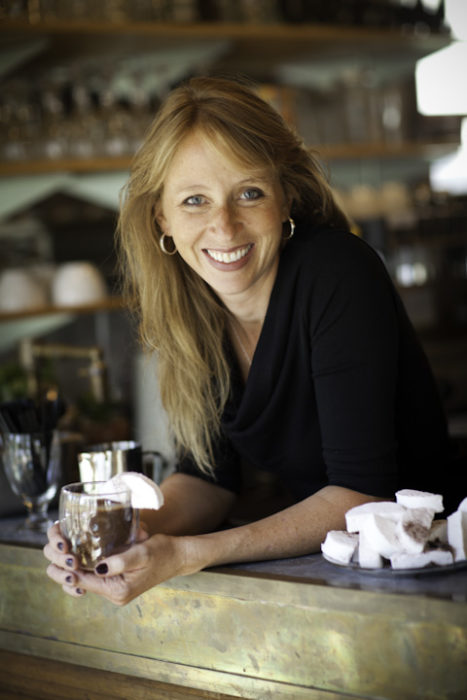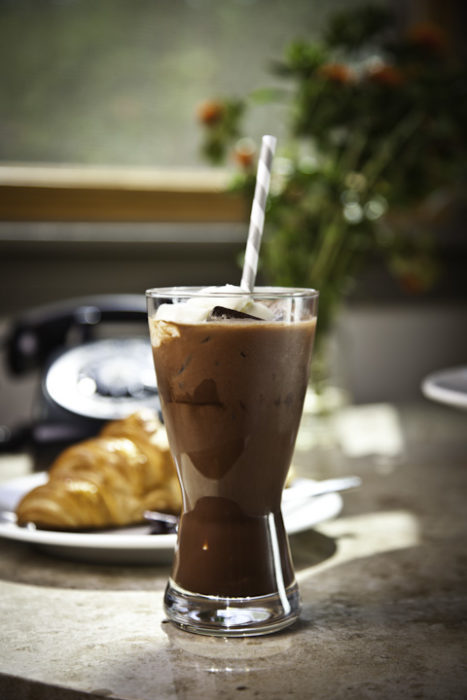Austin is bursting with enthusiasm for food. Even better, our city fosters innovative startups that add to the richness and experience of the food scene.

Foodies, food trucks, and fans of food in general have thrived and grown over the last twenty years, driven by the mix of musicians, college students, and artists seeking cheap and delicious food. Thus the food truck phenomena hit Austin first, giving our city a reputation for being a scrappy player in the food scene.
The recent surge of interest in startups and entrepreneurship has encountered the food movement here, creating the ideal climate for food-related incubators fostering the birth of new food companies. One new innovator entering the market is Molly Lindner with her company, Choxolat.
Lindner’s description of the creation of Choxolat offers a glimpse into how her process might provide a model to other innovators who seek access to Austin’s unique and vibrant food culture. Her process includes methodical due diligence, careful gathering and curating of knowledge from experienced mentors, and experimentation with new ideas. Successful entrepreneurs build their companies by paying attention to this process, gathering first-hand knowledge that offers entrepreneurs entry into the business world in ways that give their startups a fighting chance to survive and thrive.
But what is noticeable and a bit unsettling is the number of young startup teams that want instant access to a food scene that is complicated and still emerging here. What these new teams lack is a sense of the importance of process.
While living in Mexico City and working for USAID, she became interested in the coffee business. With connections in Austin, she took a few research trips to explore the local coffee scene. She noticed that Austin’s baristas were doing just fine without her, a potentially disappointing discovery. Except she also observed that these coffee geeks infuse their chocolate flavored drinks with unexceptional syrups. This paradox inspired a different business concept: Lindner’s Choxolat would provide baristas with an equally exceptional and consistent drinking chocolate, called Sip, to match the quality of their coffee.
The process continued and included trips to the San Francisco Fancy Food Show where she found a food business coach. With a coach knowledgeable about launching a food business in tow, Lindner then assembled the rest of her “A” team of specialists: a chocolatier and a public relations and marketing company. These three individuals brought skills that compliment Lindner’s persistent discovery and education.
Why do many startups fail? They fail because they are in a hurry. Many new entrepreneurs are in a rush and forget the importance of not only meeting those in the food scene but of listening to them. Because many entrepreneurs are impatient, they are often motivated more by “running a company” than finding an opportunity for solving a problem. They often startup a business that is long on enthusiasm and short on knowledge.
A blend of three high-end chocolates finely ground into a powder quickly combines with milk to produce a rich dark chocolate drink that combines well with coffee or thrives on its own. Her powdered blend of Belgian chocolate is 60% cocoa with the addition of sugar and Himalayan pink sea salt, her signature Sip drink that is called Dark with Sea Salt.

Lindner and her family are moving to Austin as her drinking chocolate is hitting the stores. She is actually selling more to the local retail market, which has discovered that her blended, powdered drinking chocolate stands on its own. Spicy Spice, Peppermint, and Dark Cherry are some of the other flavors in her line of chocolate powders. And just for fun, her customers, baristas and chocolate-sippers alike, sell her marshmallows, which she describes as like “clouds on a sunny day.” Sip’s chocolate beverages are available at Austin’s farmers’ markets and Austin retail stores such as Whip In and Thom’s Market.
Sip is a product of Choxolat Concepts, Lindner’s company in Austin. Following in the tradition of 17th century European coffee houses, baristas in Austin will now be able to provide their customers with fine chocolate along with their artisanal coffee beans.

Author